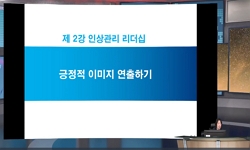This article examines three episodes reported from Suijŏn (Unusual Stories), a text full of fantastical elements compiled between the 10th and 12th centuries and surviving only in part, due to fragments reported in later works. The three episodes are...
http://chineseinput.net/에서 pinyin(병음)방식으로 중국어를 변환할 수 있습니다.
변환된 중국어를 복사하여 사용하시면 됩니다.
- 中文 을 입력하시려면 zhongwen을 입력하시고 space를누르시면됩니다.
- 北京 을 입력하시려면 beijing을 입력하시고 space를 누르시면 됩니다.
부가정보
다국어 초록 (Multilingual Abstract)
This article examines three episodes reported from Suijŏn (Unusual Stories), a text full of fantastical elements compiled between the 10th and 12th centuries and surviving only in part, due to fragments reported in later works. The three episodes are united by the literary tòpos of crossing the sea, common to many cultures since the most remote antiquity. By conducting a comparative/structuralist analysis of the Korean text and other texts of the Western tradition, the paper seeks to identify a common “cultural structure”, because of which crossing of the sea becomes a metaphor of atonement and transformation of the individual. In this regard, the three Korean stories are particularly interesting in that the “mechanisms” that drive the crossing of the sea (and therefore of the “alchemical” process of transformation), differ in each episode, but are ultimately positive in terms of the formative path of the protagonists.
동일학술지(권/호) 다른 논문
-
- 계명대학교 한국학연구원
- SHIMUNEK ANDREW ERIC
- 2023
- KCI등재,AHCI,SCOPUS
-
- 계명대학교 한국학연구원
- 김성희
- 2023
- KCI등재,AHCI,SCOPUS
-
Homogeneity of Sŏktok kugyŏl 釋讀口訣 and Hyangch’al 鄕札 and Principle of Hyangch’al Composition
- 계명대학교 한국학연구원
- 박재민
- 2023
- KCI등재,AHCI,SCOPUS
-
Carving Status at Kŭmgangsan: Elite Graffiti in Premodern Korea. By Maya K. H. Stiller.
- 계명대학교 한국학연구원
- 고연희
- 2023
- KCI등재,AHCI,SCOPUS








 KCI
KCI eArticle
eArticle



